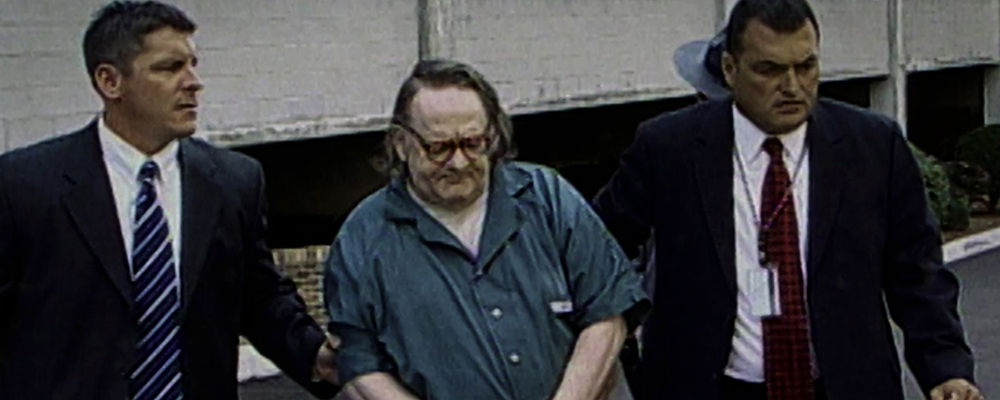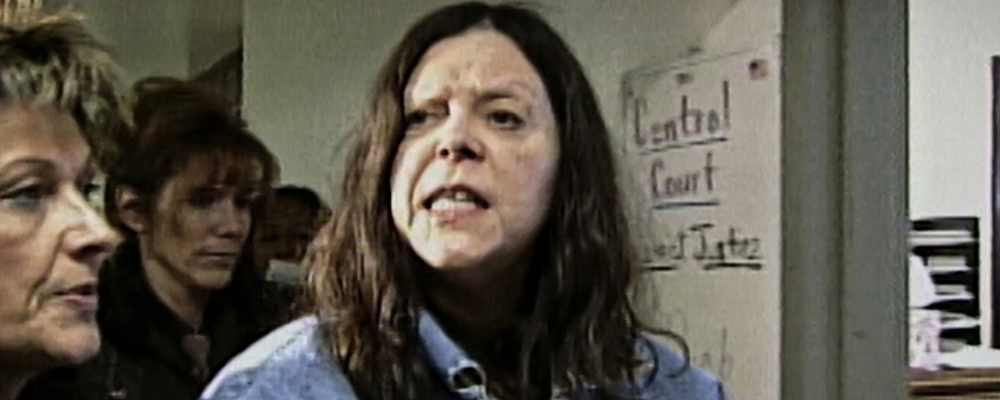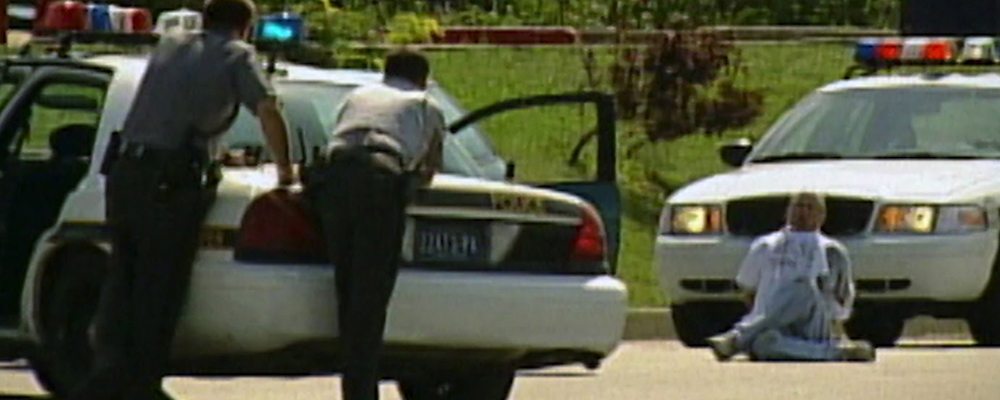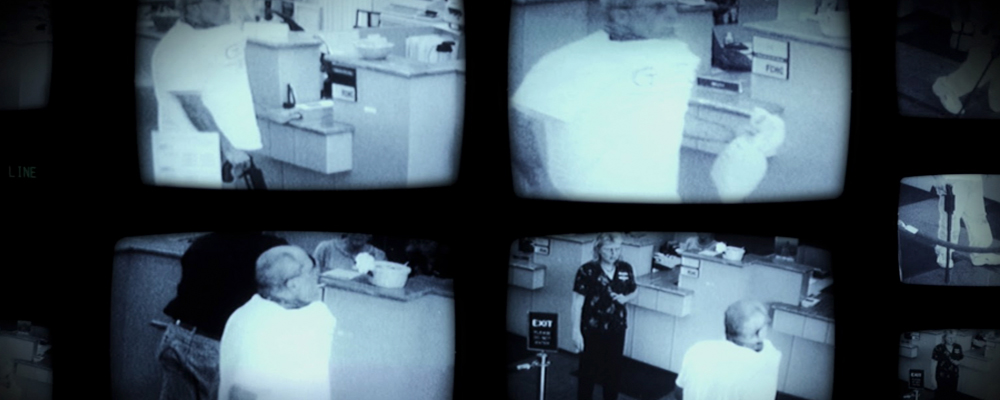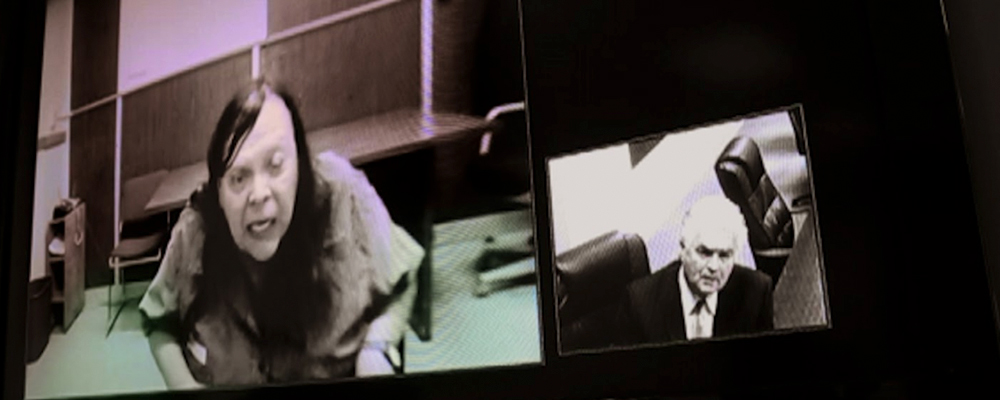Directors Trey Borzillieri and Barbara Schroeder on Tracking Down the Facts Behind a Bizarre Crime for Netflix’s ‘Evil Genius’
Alci Rengifo
On August 28, 2003 one of the most disturbing and bizarre American crime stories unfolded when 46-year-old Brian Wells walked into an Erie, Pennsylvania bank, carrying a cane gun. A pizza delivery man turned bank robber, Wells also had a neck bomb strapped to his body. After taking $8,000 from the bank Wells found himself surrounded by police on the middle of a road where the bomb would eventually go off, ending his life. How Wells came to this strange and eerie end is the subject of the new Netflix docu-series “Evil Genius: The True Story of America’s Most Diabolical Bank Heist.”
Produced by Mark and Jay Duplass, directors of the major Netflix docu-series “Wild Wild Country,” “Evil Genius” is directed by Trey Borzillieri and Barbara Schroeder with a riveting pace and engrossing narrative. Beginning with the infamous bank heist and Wells’s subsequent death, the four-part series follows the evidence linking Wells to a fascinating, bizarre group of people. The central character is Marjorie Diehl-Armstrong, who was once adored for her looks and intelligence, but soon fell into a black hole of mental illness and slovenly living. Borzillieri made contact with Diehl-Armstrong, who is now in prison, and kept a recorded correspondence for years, much of which is used in the docu-series. As the series digs deeper into the strange details of the case, including rambling notes found on Wells with details of a scavenger hunt, the plot thickens and becomes more extreme. The authorities get involved when Diehl-Armstrong’s casual boyfriend, Bill Rothstein, calls the cops to let them know Diehl-Armstrong has another ex-boyfriend’s body in her freezer. Soon she and a slew of other individuals are connected to Wells, revealing a scheme weird and perversely complicated.
Borzillieri and Schroeder sat down with Entertainment Voice to share their experiences in tackling one of the most gruesomely strange recent heist cases.
This is such a wild and strange case. How did you first become involved in tackling it as a film project?
Borzillieri: I was in college when it happened, and it was such a bizarre and fascinating case. I jumped off the couch and started knocking on doors and just followed the case for over a decade. In 2013 I brought Barbara onboard. I had seen a film she did called “TalhotBlonde,” it was fantastic. At that point we teamed up to get deeper truths in the story and the case, and here we are today.
Schroeder: Trey brought so much to this project early on. He had videotapes which hadn’t been seen before, he had a relationship with one of the wildest characters you could find in a true crime series. He had audio recordings. And there were a lot of questions that still remained, even though this was technically a major FBI case that was deemed closed. There were questions like, “who really was the mastermind? Who really wrote those notes?” The FBI couldn’t really tell us. Who really built that bomb? We think we know but we don’t. So that was the journey we embarked on. As you’ll see in episodes three and four, we hopefully get some insight into those answers.
There is a relationship here with one of the people involved in this case. How hard was it to reach out to Marjorie Diehl-Armstrong? Was she open and willing from the start?
Borzillieri: Yeah, I hope I can do this justice in describing it. It couldn’t have been more unusual at the time. We’re now at a point in time with documentaries where it’s almost becoming common to have these types of relationships with criminals and being able to capture them. But back then that really wasn’t happening. I had seen some pictures of her. You know the case went cold for two years. It’s also worth noting the law enforcement officers involved were under a federal gag order, so they couldn’t talk much about the case. It wasn’t like I could just show up at a police department and request an interview with the detectives. I contacted Marjorie just hoping she could have something to say about this. At that point in time I heard back from her and she was open to corresponding, so away we went. I could never have imagined all the twists and turns and where the story would go, especially her story, at the moment I contacted her.
Schroeder: We had to endure years and years of verbal onslaughts from her. She’s brilliant, she’s very erudite and very manipulative. You’ll see in episode four when she gets upset she’s no holds bar. At one point she tells Trey, “I’ll sue your f—king balls off!” In another conversation she’ll be thanking him and being gracious and signing off with “love ya.” It’s this really unprecedented journey with a protagonist in a story like this.
Could you share something about the case that truly shocked you or that you didn’t expect to find when embarking on this project.
Borzillieri: Well, the whole story is utterly surprising and shocking. There’s so many twists and turns, and each one has big reveals.
Schroeder: To give you some specific examples, I didn’t realize what happened to Brian Wells the night of his death. The death was horrific but then they took him to the coroner’s office. To learn that they cut his head off to preserve a piece of evidence [the bomb collar], that was a shock. I had not heard that before. There’s an interview in part four with an exclusive eyewitness, and Trey established a relationship with her that lasted many years. That was also quite a shocking moment to hear new information from her that investigators weren’t able to get.
There’s a hunger right now for true crime stories. We’re seeing the genre make a big impact, particularly in the documentary field. Why do you think these stories have such a profound and wide appeal?
Borzillieri: Everybody loves a great mystery. And some of these crimes, at the core, are mysteries. It’s a form of involved storytelling. What’s shocking is that through-out the years there have been some documentaries that have been able to get to the truth. It’s changed the cases themselves, not just out understanding. There have been arrests. To be able to be a doer and participate in a journey, and then realizing this is also happening real time in life, it’s so participatory. You can’t really do that in other genres. You can’t turn on a scripted series and feel like you’re participating in something.
Schroeder: I also think it’s basic human instinct for a need for justice. These true crime documentaries are in essence a search for justice. That’s something important these days.
“Evil Genius: The True Story of America’s Most Diabolical Bank Heist” premieres May 11 on Netflix.

